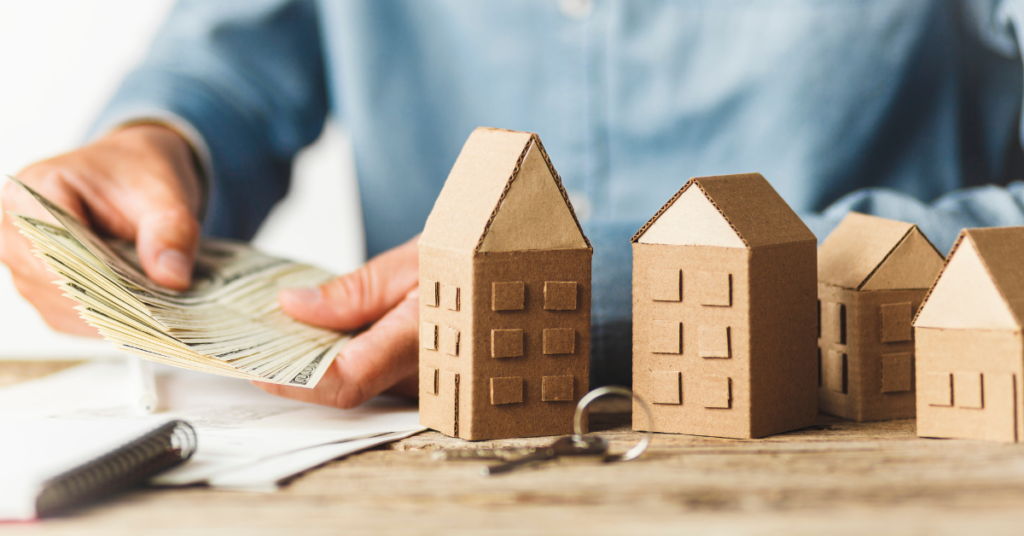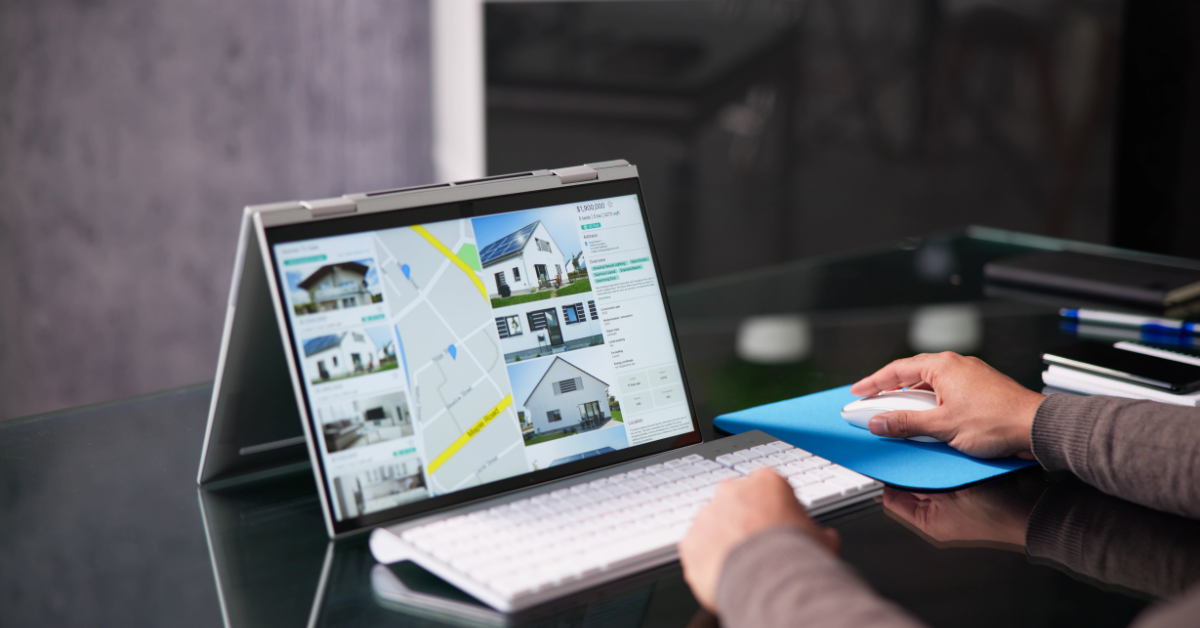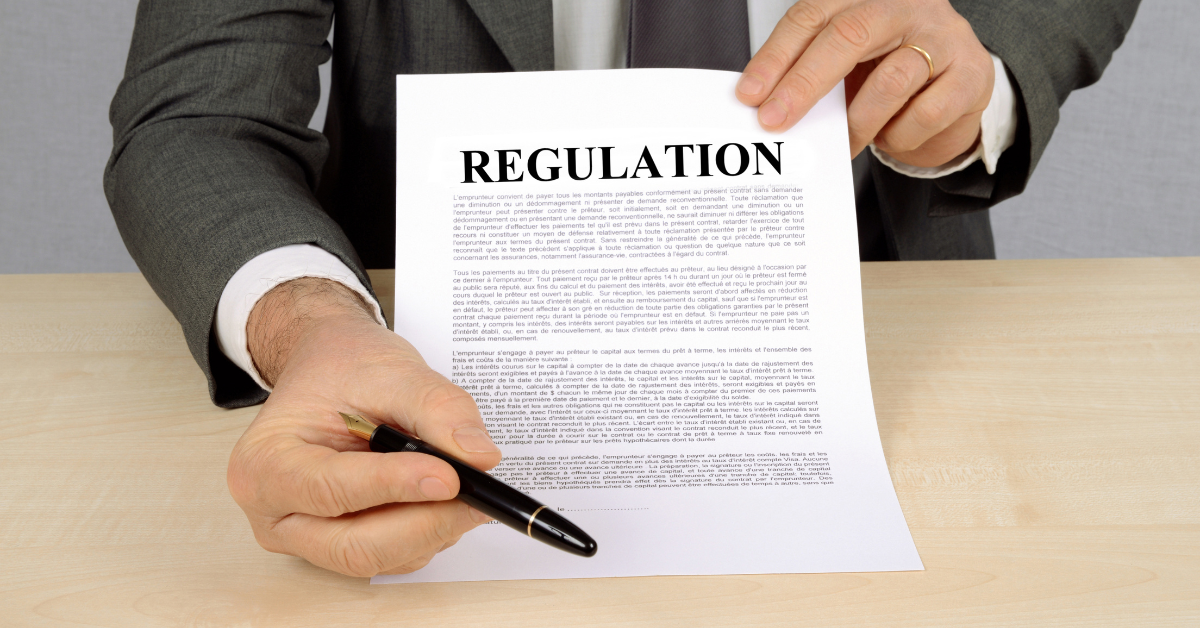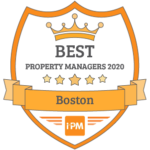Maximizing Rental Income: Strategies for Property Owners
Are you a property owner looking to maximize your rental income and unlock the full potential of your investment? If so, you’re in the right place. In the competitive landscape of real estate, maximizing rental income is not just a goal but a necessity for financial success. It requires strategic planning and execution to navigate…

Are you a property owner looking to maximize your rental income and unlock the full potential of your investment? If so, you’re in the right place.
In the competitive landscape of real estate, maximizing rental income is not just a goal but a necessity for financial success. It requires strategic planning and execution to navigate market fluctuations and tenant preferences effectively.
Imagine having a rental property that consistently generates optimal income, maintains high tenant satisfaction, and increases in value over time. With the right strategies in place, this vision can become a reality.
In this guide, we will explore a range of proven strategies tailored specifically for property owners like yourself, aimed at maximizing rental income while ensuring property value and tenant happiness. Let’s get started!
Strategic Market-Based Pricing

Maximizing rental income hinges on competitively pricing your property, grounded in comprehensive market research. Set rental rates strategically by analyzing comparable properties in your area, factoring in your property’s amenities, features, and location.
To determine the ideal rental rate, delve into market research. Review active listings and recently leased properties similar to yours, considering factors such as pricing, square footage, bedrooms/bathrooms, amenities, and location. Adjust your pricing accordingly based on these comparisons.
Tailor your rental pricing to highlight your property’s unique attributes and location. For instance, properties in walkable urban areas or near public transportation typically command higher prices. Features like granite countertops and hardwood floors add value, as do amenities such as garage parking and in-unit laundry.
Furthermore, research historical seasonal rental fluctuations in your local market. Some areas experience heightened demand during specific seasons. Capitalize on this by adjusting rent by 10-20% during peak seasons and offering discounts during slower periods to minimize vacancies. Ensure any seasonal rate changes comply with local regulations.
You can optimize your property’s rental income by implementing strategic, research-based pricing. Regularly review market data to fine-tune pricing and maintain competitiveness. Pricing that reflects your property’s attributes, location appeal, and seasonal demand trends will maximize revenue potential.
Property Upgrades for Value Enhancement
Improving your rental property with strategic upgrades can significantly increase its value and rental income potential. Investing in the right enhancements allows you to charge higher rents, attract quality tenants more quickly, and reduce vacancy periods.
Curb Appeal Improvements
Curb appeal directly impacts the perceived desirability of a rental unit. Tenants are often willing to pay more for an attractive, well-maintained property. Consider the following approaches to enhance curb appeal:
- Fresh coat of exterior paint in an appealing, modern color scheme. Neutral tones generally have the widest appeal.
- Landscaping upgrades like flower beds, shrubs, and lighting along walkways. Emphasize greenery and visually pleasing garden designs.
- Pressure washing exterior surfaces like siding, windows, shutters, and walkways. Remove any dirty or dingy buildup.
- New front door in a modern style and color. Decorative house numbers and attractive exterior hardware also help.
- Driveway/sidewalk maintenance by repairing cracks, stains, and uneven surfaces.
Kitchen and Bathroom Upgrades
Kitchens and bathrooms are rooms renters pay close attention to. Invest in the following renovations to modernize these spaces:
- New stainless steel appliances like refrigerators, stoves, and dishwashers. A matching suite of appliances conveys luxury.
- Quartz or granite countertops instead of laminate. More durable and visually appealing.
- Tile backsplashes and new sink fixtures for a contemporary look.
- Replace outdated cabinet hardware with modern handles and knobs.
- New vanity, sink, hardware, and lighting fixtures in bathrooms.
- Luxury vinyl plank flooring instead of worn carpeting or tile.
Energy Efficiency Investments
Increasing energy efficiency not only reduces environmental impact but can yield cost savings that translate to higher profit. Consider:
- New HVAC systems like heat pumps that provide both heating and A/C. Look for ENERGY STAR-certified units.
- Added insulation in walls, attics, and basements to reduce heat transfer/loss.
- Energy-efficient windows and doors that seal tightly and prevent drafts.
- Smart thermostats that optimize temperature settings for efficiency.
- LED light bulbs, motion sensors, and automatic light switches.
- Low-flow toilets, faucets, and showerheads to reduce water usage.
Tenant Retention Strategies
Retaining current tenants is critical for maximizing rental income over time. Building strong relationships with tenants and providing incentives for renewals can lead to lower turnover rates and vacancy periods between rentals.
Build Positive Relationships with Tenants
- Make an effort to get to know your tenants personally and make them feel valued. Follow up after move-in to ensure they are settled in comfortably.
- Be responsive to any maintenance requests or concerns in a timely, professional manner. Quickly addressing issues prevents small problems from becoming major grievances.
- Periodically check in with tenants to open up a friendly line of communication. Get a sense of their satisfaction and head off potential problems.
- Treat tenants with fairness, understanding, and respect at all times. Avoid an adversarial dynamic and aim for one of mutual cooperation.
Address Tenant Concerns Promptly
- Make it easy for tenants to submit maintenance requests and complaints. Respond to every issue seriously and develop solutions.
- If tenants raise concerns about the property or services, hear them out with empathy first before reacting. Then collaborate to find an agreeable resolution.
- Follow up on any issues to ensure they have been fully resolved to the tenant’s satisfaction. Lack of follow-through can damage tenant relations.
- View tenant grievances as opportunities to improve your property management services. Prevent future problems by learning from current ones.
Provide Incentives for Lease Renewals
- Offer a discount on rent for lease renewals, such as 5% off for a 1-year renewal or 10% off for a 2-year renewal. This incentivizes longer tenancy.
- Consider reducing or waiving rental increases for renewals. Tenants will appreciate predictable rental rates.
- For tenants who renew leases early, provide a small gift like a gift card or complimentary services.
- Make the renewal process simple and convenient to encourage tenants to stay. Follow up with renewal reminders as the lease expiration approaches.
Leveraging Technology for Enhanced Efficiency
Technology has opened up many opportunities for property owners to manage their rentals more efficiently. By taking advantage of the latest property management software, smart home devices, and online rental platforms, owners can streamline processes, reduce costs, and maximize rental income.
Property Management Software
Specialized property management software centralizes all aspects of rental operations, including listings, applications, leases, maintenance requests, accounting, and reporting. Features like automated rent collection, online portals for tenants, and remote property access increase efficiency. Owners benefit from time savings, reduced overhead, and data-driven insights into property performance. Popular software options like AppFolio, Buildium, and Entrata integrate directly with accounting platforms and online rental sites.
Smart Home Technology
Smart home devices offer convenience and security for tenants while giving owners enhanced control and visibility. For instance, smart thermostats such as Nest enable remote temperature adjustments, lowering energy expenses during vacancies. Keyless entry is provided to tenants through smart locks, which also track activity. Security cameras and sensors keep tabs on the property, alerting owners to any concerns. These devices often integrate with management platforms, allowing for the compilation of sensor data and the identification of areas for operational enhancement.
Online Rental Platforms
Listing properties on sites like Zillow, Apartments.com, and Rentals.com expands visibility among prospective tenants. Owners can syndicate listings across multiple platforms while centralizing inquiries and applications. Websites like these handle advertising and lead generation while providing analytics on listing views and engagement. Owners should utilize high-quality photos, 3D tours, and detailed listings to stand out. Social media also helps attract tenants by highlighting a property’s amenities and community.
Marketing and Advertising Your Rental Property

A strong marketing and advertising strategy can help attract high-quality tenants and demand optimal rental rates for your property. Consider these approaches to showcase your rental professionally and maximize exposure:
Highlight Amenities and Special Features
Create a detailed listing that describes your property’s best features and amenities. Highlight details like updated kitchens and bathrooms, premium finishes, outdoor spaces, proximity to parks and recreation, and any tech features like smart home devices. Providing an honest and attractive portrait of the unit helps set realistic expectations and attract tenants who will appreciate the features offered.
Invest in Professional Photography
Professional real estate photography can dramatically improve the presentation of your rental listing online and in print materials. Investing in wide-angle, high-resolution photos and video tours ensures potential tenants get an accurate view of the space and finishes. Dramatic lighting and perspective in photos also help showcase the property’s size and light. Virtual staging can also improve empty spaces.
Leverage Social Media and Online Listings
Promote your listing on popular platforms like Facebook Marketplace, Craigslist, Zillow and Trulia. Social networks like Facebook, Instagram, or TikTok are also great for targeted promotion of your listing in your local area. Paid online ads can further boost visibility for competitive listings. Having complete details, professional photos and positive landlord reviews helps listings stand out on these platforms.
Print Ads and Signage
For local visibility, place print ads in neighborhood real estate guides, local newspapers, community boards, transit shelters etc. Yard signs and flags with the listing details also help expose passersby to the available rental. Just be sure to remove the signs after the unit is rented.
Efficient Maintenance
Regular maintenance and timely repairs are critical for maximizing your rental income and providing tenants with a positive living experience. Preventative maintenance helps avoid costly emergency repairs down the road.
Conduct Regular Inspections and Maintenance
- Inspect rental units thoroughly in between tenants, and complete any needed repairs or upgrades before showing or leasing the unit.
- Establish a schedule for periodic inspections and preventative maintenance, such as checking smoke detectors every 6 months or inspecting roofs and gutters seasonally.
- Walk through rental units at least annually to spot potential issues early. Check appliances, electric systems, plumbing, windows, floors, walls, and fixtures.
- Replace HVAC air filters, test smoke detectors, power wash exterior surfaces, prune trees/shrubs, and make other minor repairs regularly.
Enable Streamlined Maintenance Requests
- Make it easy for tenants to submit maintenance requests through multiple channels like phone, email, mobile app, or web form.
- Use a property management platform to track all maintenance requests and communications in one place.
- Respond promptly to all tenant repair requests, and follow up on the status. Prioritize emergency or safety-related repairs.
- Maintain a network of reliable service professionals to call for repairs like plumbers, electricians, and HVAC technicians.
- Conclude repairs professionally and clean up properly afterward. Verify issues are fully resolved to tenants’ satisfaction.
Budget for Preventative Maintenance
- Factor regular maintenance and projected repairs into your operating budget. This avoids surprise expenses down the road.
- Set aside reserves annually for bigger maintenance projects like roof replacement or exterior painting based on buildings’ age and condition.
- Take advantage of between-tenant turnovers to make updates and repairs so the unit stays in top shape.
Budgeting and Planning
Creating a realistic budget for your rental property management is critical for maximizing your rental income. By carefully assessing your income, expenses, and projected costs, you can establish a budget that accounts for routine expenses like maintenance and repairs while also planning for future upgrades and renovations.
When budgeting, be sure to include:
– Monthly mortgage payments
– Property taxes
– Insurance
– Utilities
– Management fees
– Maintenance and repair costs
– Vacancy costs
– Capital expenditures and upgrades
Also, factor in a reserve fund to cover any unexpected costs or vacancies. Aim to set aside 5-10% of your monthly rental income for this reserve.
When planning upgrades or renovations, perform a cost analysis to determine the return on investment (ROI). Compare the upfront project costs to the potential increase in rental income. Prioritize upgrades like kitchen and bathroom renovations that typically yield the highest ROI. Also consider energy-efficient upgrades like new windows, as they can significantly reduce tenant utility costs and make your property more attractive.
Keep close tabs on market conditions in your area. Plan for fluctuations in the local rental market by adjusting your budgets accordingly. In slower markets, you may need to reduce rents or offer concessions to attract tenants. In busier markets, you may be able to implement higher rents and charge application fees to capitalize on demand.
Revisit your rental property budget frequently and adjust as needed. With careful planning and budgeting, you can maximize profits while proactively addressing expenses and fluctuations in the market.
Seasonal Rental Adjustments
One effective strategy for maximizing rental income is to implement seasonal pricing adjustments. Property owners can take advantage of fluctuations in demand during different seasons and events to optimize revenue.
During peak rental seasons, property owners can justifiably increase rental rates to match high demand. For vacation rental properties, seasons like summer, major holidays, and popular local events tend to attract far more prospective tenants and higher rental prices. By increasing rates during predicted surge seasons, owners can maximize income from the increased interest in their property.
Conversely, offering seasonal discounts during slower months can help attract tenants during lower-demand seasons. Occupancy can be encouraged by reducing rates for periods that typically experience vacancies. For example, ski resort properties may offer winter discounts to tenants willing to sign longer leases encompassing both high and low seasons.
Owners should research historical seasonal demand for both short-term vacation rentals as well as long-term occupancy in their specific location. Seasonal pricing should be based on reliable patterns over recent years, with some flexibility to respond to unexpected fluctuations.
Legal Considerations

As a property owner and landlord, it is crucial to understand and comply with all applicable rental laws and regulations. Though requirements vary by location, there are key legal considerations to keep in mind when setting rental prices and managing your property.
Local Rental Regulations
Many municipalities have specific laws about security deposits, late fees, maintenance responsibilities, and more. Be sure to research the requirements for your local area so you are operating fully within the law. For example, some places cap late fees at a certain percentage of the monthly rent. Others stipulate conditions around withholding security deposits. Know the rules that apply to your specific property.
Fair Housing Practices
Federal and state fair housing laws prohibit discrimination against protected classes when renting property. You cannot refuse to rent to someone or alter pricing based on race, color, religion, sex, national origin, disability, familial status, and other protected traits. Always ensure your rental prices, qualifications, and decisions align with fair housing regulations.
Transparency in Leases
Clearly outline all policies, rental rates, fees, and terms in your lease agreements. Provide adequate notice before increasing rent or declining lease renewals. Do not make verbal agreements that contradict the written lease. Maintaining transparency and proper documentation protects both landlords and tenants. Consult an attorney if needed to ensure your lease covers all necessary provisions in a clear and lawful manner.
Conclusion
Maximizing rental income requires a multifaceted approach that encompasses strategic property management, market analysis, and tenant satisfaction. With careful planning and execution, property owners can leverage these strategies to unlock the full earning potential of their investment properties, ultimately securing a stable and lucrative stream of rental income for years to come.
Unlock your property’s full potential! Partner with Green Ocean Property Management to maximize your rental income and gain peace of mind. Elevate your profits today.
How Important is 6D Forms in Real Estate?
One of the obligations that we have in managing condo associations is to make sure that the documentation process is done smoothly. Any type of paperwork that’s necessary for the transaction of either purchased or refinanced, we have to handle its 6D forms. What is 6D? 6D is a form and it’s from…
Say Goodbye to the Hassle Collection of Laundry Machine Coins at Your Rental Property
Are you a property owner tired of the hassle of collecting and managing laundry machine coins? Look no further than Green Ocean Property Management, where we specialize in making your life easier. Our dedicated team ensures you receive every dollar, cent, and quarter from your laundry machine income. In this article, we will delve into…
Why Two Means of Egresses is the Safest Way to Go
Our founder, Jarrett Lau, walks through dozens of properties every month for his prospective clients to make sure each property is safe, secure, and most importantly legal in the city. We’ve seen a property that had both a basement and an attic built on it. The first thing we noticed was the means of…









